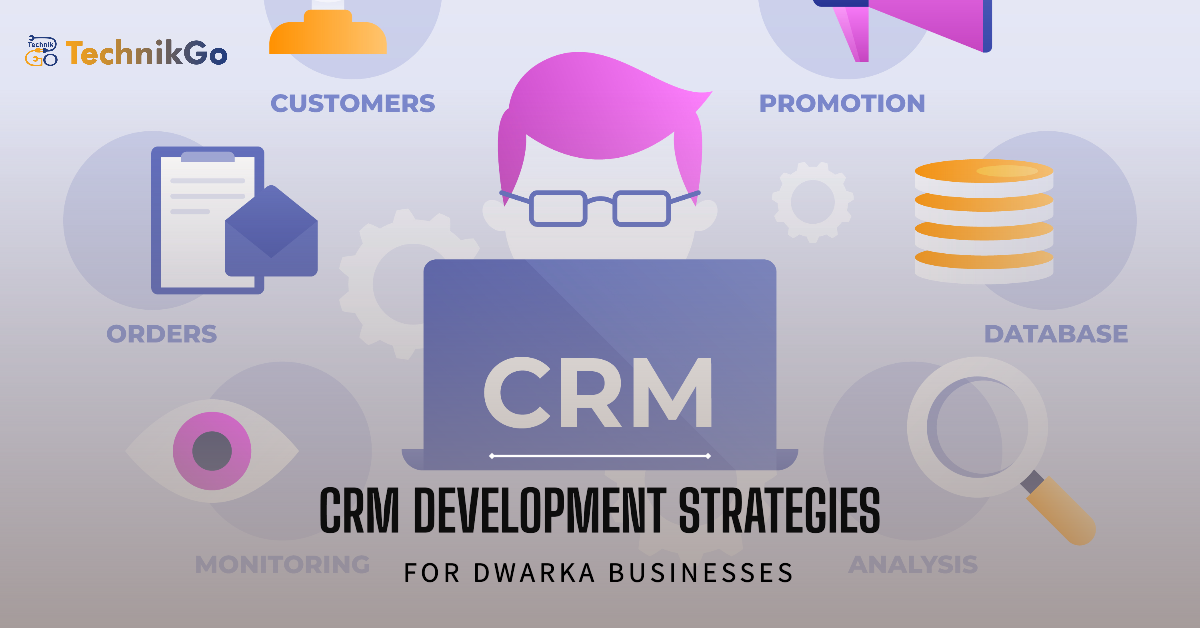Welcome to the TechnikGo Blog
Explore the latest in technology, IT solutions, and digital innovation with the TechnikGo Blog.
IT consultants act as trusted advisors, helping businesses leverage technology to achieve their goals. This can involve anything from recommending new software to designing entire IT infrastructures.
Some IT consultancies are generalists, offering a wide range of services. Others specialize in specific areas, such as cybersecurity, cloud computing, or network management.
IT consultants can help businesses of all sizes improve their efficiency, security, and competitiveness by providing expert advice and guidance on all things IT.
IT consultants can supplement your existing IT staff by providing expertise in specific areas or taking on projects that your in-house team doesn't have the time or resources for.
When choosing an IT consultant, it's important to consider your specific needs and budget. You'll also want to find a consultant who has experience working with businesses in your industry.
Digital marketing is the use of the internet, mobile devices, social media, search engines, and other channels to reach consumers and promote products or services. It's a constantly evolving field that encompasses a wide range of tactics and strategies, from search engine optimization (SEO) and content marketing to social media marketing and pay-per-click (PPC) advertising.
In today's digital age, consumers are spending more and more time online. This means that businesses need to have a strong digital presence in order to reach their target audience. Digital marketing allows businesses to connect with consumers on a personal level, build brand awareness, and generate leads and sales.
There are many different types of digital marketing, but some of the most common include:
- Search engine optimization (SEO).
- Content marketing.
- Social media marketing.
- Pay-per-click (PPC) advertising.
- Email marketing.
The cost of digital marketing can vary depending on a number of factors, such as the size of your business, your target audience, and the channels you use. However, digital marketing can be a very cost-effective way to reach a large audience.
- Developing a digital marketing. strategy
- Creating a website.
- Creating content.
- Promoting your content.
- Tracking your results.
Web development refers to the process of building and maintaining websites. It involves a variety of tasks, including web design, coding, content creation, and server configuration, aimed at creating a functional and visually appealing online presence.
The key components of web development include front-end development, which focuses on the user interface and experience, and back-end development, which involves server-side programming and database management. Additionally, web development may involve aspects such as web security, SEO (search engine optimization), and content management systems (CMS).
Common programming languages used in web development include HTML (Hypertext Markup Language) for creating web pages, CSS (Cascading Style Sheets) for styling and layout, and JavaScript for adding interactivity and dynamic content. Additionally, back-end development often involves languages like PHP, Python, Ruby, and Java.
Responsive web design is an approach to web development that ensures websites adapt and respond to different screen sizes and devices, such as desktop computers, laptops, tablets, and smartphones. This ensures optimal viewing and usability across various platforms and screen resolutions.
Front-end development involves building the visible parts of a website that users interact with, including the layout, design, and functionality. Back-end development, on the other hand, focuses on the server-side logic and database management that support the front-end functionality, handling tasks such as data processing, user authentication, and server communication.
Cybersecurity is the practice of protecting systems, networks, and data from unauthorized access, use, disclosure, disruption, modification, or destruction. It's important for businesses and individuals alike to protect their sensitive information from cyberattacks.
- Phishing.
- Malware.
- Ransomware.
- Denial-of-service (DoS) attacks.
- Man-in-the-middle (MitM) attacks.
- Password attacks.
There are a number of things you can do to stay safe online, including:
- Use strong passwords and change them regularly.
- Be careful about what information you share online.
- Be wary of emails and attachments from unknown senders.
- Keep your software up to date.
- Use a firewall and antivirus software.
- Back up your data regularly.
A cybersecurity breach occurs when unauthorized individuals gain access to sensitive information or systems. Organizations can prevent breaches by implementing strong security measures, conducting regular security audits, educating employees about cybersecurity best practices, and staying vigilant for potential threats.
You can learn more about cybersecurity best practices from reputable sources such as Technikgo.com, cybersecurity organizations, government agencies, online courses, and cybersecurity blogs and publications.

Affordable and Custom E-commerce Website Development Services for Small Businesses and Startups
Affordable and Custom E-commerce Website Development Services for Small Businesses and Startups An e-commerce website serves as the digital storefront,

Why Web Development is Essential for Businesses in Palam, New Delhi
Why Web Development is Essential for Businesses in Palam, New Delhi Table of Contents Palam, a prominent industrial area in

How to Regain Access to Your Google Business Profile Without Knowing the Registered Gmail Account
How to Regain Access to Your Google Business Profile Without Knowing the Registered Gmail Account Table of Contents If you’ve

Top CRM Trends Dwarka Businesses Should Watch in 2024
Top CRM Trends Dwarka Businesses Should Watch in 2024 Table of Contents In the modern business climate, client interactions are

From Leads to Loyalty: CRM Strategies for Dwarka Entrepreneurs
From Leads to Loyalty: CRM Strategies for Dwarka Entrepreneurs Table of Contents At Technikgo technikgo.com, we understand the unique challenges

10 Ways CRM Software Can Transform Your Sales Process
10 Ways CRM Software Can Transform Your Sales Process Table of Contents At Technikgo technikgo.com, we understand the importance of

How Do I Select the Right CRM Development Provider
How Do I Select the Right CRM Development Provider Table of Contents At TechnikGo technikgo.com we understand the power of

Next-Level Customer Engagement: The Promise of CRM Services in Dwarka
Next-Level Customer Engagement: The Promise of CRM Services in Dwarka Table of Contents In today’s fiercely competitive business landscape, customer

How to Implement CRM Development Strategies for Dwarka Businesses
How to Implement CRM Development Strategies for Dwarka Businesses Table of Contents At Technikgo technikgo.com we understand the dynamic business

Boost your business with our CRM in Dwarka
Boost your business with our CRM in Dwarka Table of Contents At Technikgo, we understand the ever-growing importance of Customer Relationship

The Ultimate Guide to CRM Development: From Basics to Advanced Strategies
The Ultimate Guide to CRM Development: From Basics to Advanced Strategies Table of Contents Strong customer relationships are the cornerstone

What are the challenges the company faces using telephony with CRM?
What Are the Challenges the Company Faces Using Telephony with CRM? Table of Contents We understand the importance of customer
